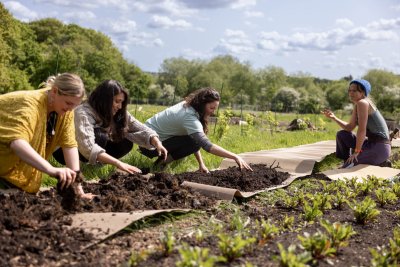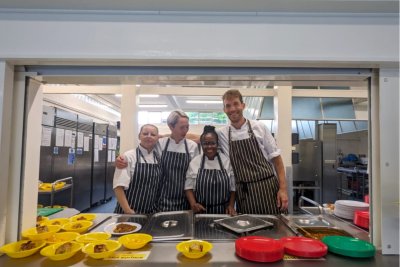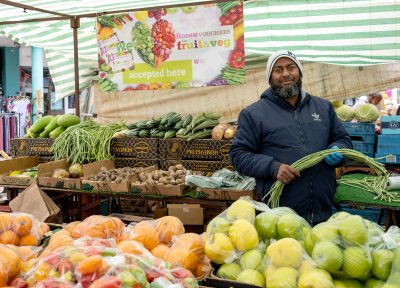News • Sustainable Food Places
New European project on sustainable transformation of our food system to start in 2020
A new project on transforming the European food system towards a low carbon circular future is due to start next year. FoodSHIFT 2030 will support and scale up sustainable food system innovations in cities across Europe.

Starting in January 2020, the FoodSHIFT2030 project will launch an ambitious citizen-driven transition of the European food system towards a low carbon circular future. The transition includes a shift to less meat and more plant based diets, while improving food and nutrition security, reducing greenhouse gas emissions and revitalizing urban-rural linkages.
The project has received EUR 7.5 million from the EU Horizon 2020 programme and features a strong multi-actor consortium with 31 partners composed of local governments, SMEs, NGOs, universities, research institutions and network partners, including IFOAM EU.
Christian Bugge Henriksen, who leads the Research Group on Climate and Food Security at the University of Copenhagen, coordinates the project:
"By supporting the transformative power of citizens already engaged in developing sustainable and innovative food system solutions in European city-regions, FoodSHIFT2030 aims to increase food sector jobs, boost small and medium-sized enterprises (SMEs), empower citizens and facilitate urban-rural cohesion. By doing so we aim to have a lasting positive impact on food system sustainability that will continue beyond the project lifetime.”
Boosting innovation through cities
The rapid transition to a citizen-driven food system that the programme aims for will begin in FoodSHIFT Accelerator Labs in nine city-regions: Greater Athens, Avignon, Barcelona, Bari, Brasov, Berlin, Greater Copenhagen, Oostende and Wroclaw. Subsequently the learning and experiences will be shared with twenty-seven other city-regions ('Enabler Labs'). Each lab will work on maturing, combining and scaling up existing food system innovations within a specific thematic focus - including urban agriculture, procurement, food waste, climate friendly food, food education, and much more.
The benefits of these food system innovations on the environment, the economy and the society will be determined by assessing their effects on a set of indicators - the development of which - and adoption by other cities - could be groundbreaking. The programme will also support the co-creation, within the participating city-regions, of strategies and advisory plans for citizen-driven food system governance in order to drive the necessary transition in the food system and foster market uptake of the innovations.
Sustain will be contributing to FoodSHIFT2030 as a network partner leading on sharing learning (knowledge transfer) and dissemination via city and region networks and also between FoodSHIFT Accelerator Labs and Enabler Labs. Sustain will facilitate this by providing webinars and applying their experiences from the Sustainable Food Cities and Food Power networks.
For more information about the FoodSHIFT2030 project check out www.foodshift2030.eu
Published Wednesday 20 November 2019
Sustainable Food Places: The Sustainable Food Places Network helps people and places share challenges, explore practical solutions and develop best practice on key food issues, so if you are working to drive positive food change or are interested in developing a programme, please do get in touch.





